University Statements
Michigan State University
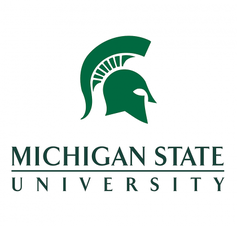
2021/03/17 Michigan State University President's Support Statement
President Samuel L. Stanley Jr., Provost and Executive Vice President Teresa K. Woodruff, and Vice President and Chief Diversity Officer Jabbar R. Bennett issued a joint support statement recognizing that persistent racism against Asian Pacific Islander Desi Americans (APIDA) and Asian individuals and communities has a long history in American society, and it has only been exacerbated during the COVID-19 pandemic. These leaders declare that they "stand with our APIDA and Asian students, faculty, staff and alumni to oppose this hate, discrimination and intolerance. MSU students, staff, faculty and alumni are affected by anti-APIDA and anti-Asian racism and xenophobia, which are antithetical to our commitment to advancing diversity, equity and inclusion and ensuring the safety and overall well-being of all Spartans." The statement lists resources are available to help connect with and provide support for members of the APIDA and Asian communities, and MSU will work to expand these offerings. If you or someone you know has experienced or witnessed hate or bias incidents, please note the places to report and supportive resources here: https://bit.ly/3ijISoF |
|
Columbia University

2019/08/30 Columbia University President Published Op-Ed
President Lee Bollinger published an op-ed in the Washington Post titled "No, I won’t start spying on my foreign-born students" on August 30, 2019. "Law enforcement and intelligence agencies determined to thwart the illegal transfer of intellectual property to foreign rivals are encouraging U.S. academics and administrators to develop more robust protocols for monitoring foreign-born students and visiting scholars — particularly if they are ethnically Chinese." "The mission of a university is to foster an open atmosphere conducive to speculation, experimentation and creation. American higher education is the envy of the world not in spite of, but because of, its unrivaled commitment to openness and diversity. Attracting — and welcoming — the brightest minds in the world, regardless of nationality or country of origin, is what we’re all about." "The unauthorized use of intellectual property by overseas competitors is a serious problem. But the surveillance of foreign-born scholars in this country is the wrong solution. If law enforcement agencies have legitimate concerns, it seems to me that they should identify and monitor those they designate as “suspicious people” based on real threats, not broad worries about entire nationalities." "The mandate of our colleges and universities is to pursue open, robust inquiry across a wide range of topics. Our institutions of higher learning should do more — not less — of what made the United States the most innovative nation in the history of the world." President Bollinger also sent this open message to the university community on September 3, 2019. Dean of Engineering Mary C. Boyce sent an earlier letter to the Columbia engineering community on June 14, 2019. |
University of Wisconsin - Madison
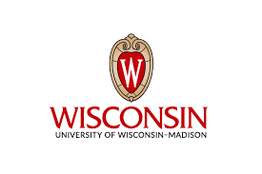
2019/08/22 Chancellor Shared History and Story on Relationship with China
Chancellor Rebecca Blank shared the history of UW-Madison and her story including a trip to China in May. "Why visit at a time when the geopolitical relationship between the countries is strained? Quite simply, UW and China need each other more than ever and can learn much from one another." "There is growing concern about security issues with China, particularly around intellectual property. We need to be smart and respectful in all of our international collaborations. Full transparency and disclosure will benefit all partners and everyone involved in collaborative research projects." "But I am proud of the number of scholars at UW – both US citizens and citizens of other countries – who have ties to China, and I support the work that they do." "The U.S. and China need each other. We need each other as trading partners; we need each other as major world leaders. And our universities need each other. We can learn more working together than working in silos." "As long as we both share a commitment to open inquiry, outstanding education, and sharing knowledge and discoveries in a way that improves people’s lives, we can work together." 中文翻译 |
|
Carneigie Mellon University
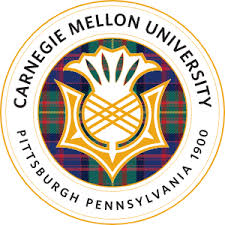
2019/08/15 President's Letter to University Community
UCA posted this letter from President Farnam Jahanian that "[a]s public concerns and political debates emerge about global engagement in higher education, we must ensure that our research ecosystem remains strong. This requires steadfast commitment to both the free flow of ideas and the safeguarding of our work as required by the national interest." "In this time of intense rhetoric and in the wake of recent incomprehensible tragedies, it is important to remember that the United States is a nation of immigrants... This is who we are and who we always will be. As an immigrant myself, I value this fundamental principle on a very personal level." "Can we be both open and secure? I believe we can... First, we must be — and are — ever-vigilant to protect our work and safeguard the national interest by following best practices, applicable laws and policies that shield us from foreign interference and exploits... Second, we must double down on what we do best: leading the world in innovation, creativity and finding solutions to society’s most pressing challenges... Finally, as a nation we must prioritize immigration policies that are central to continuing our global work and deepening our commitment to national security. " |
University of Pittsburg
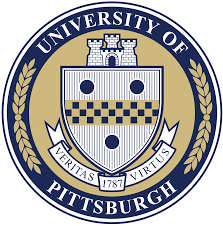
2019/07/22 Chancellar's Letter in Support of Global Engagement
Chancellor Patrick Gallagher stated in his letter to the Pitt community members that "We seek to tackle the world’s greatest challenges. We welcome the most talented faculty, students, staff and visitors from near and far. And we collaborate with the most distinguished scholars, universities and research institutions from around the world." "Yet, this long-standing tradition of global academic engagement is increasingly under attack. Rising geopolitical tensions over economic competitiveness, trade and national security have begun to erode support for the robust global academic engagement that we have long enjoyed—and which is crucial for Pitt’s continued success. ... For the international members of our academic community, I will state the obvious: You belong here. We welcomed you to our campus in good faith and in compliance with all applicable laws and regulations, and we want you to have a productive and positive Pitt experience. We will continue to do our part to help you feel at home here—no matter where else you have called home." |
|
California Institute of Technology (Caltech)
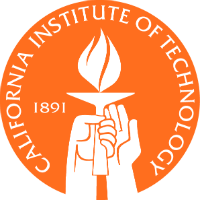
2019/07/11 President and Provost's Letter to the Caltech Community on International Community of Scholars
President Thomas F. Rosenbaum and Provost David A. Tirrell wrote in the letter that "The strength of the United States as a scientific, technological, and economic power has depended crucially on the contributions of scholars and entrepreneurs from all over the world." At Caltech, 45% of the faculty were born outside the United States, and roughly the same percentage of the graduate student body is international. Approximately 35% of American Nobel Prizes in the sciences have been awarded to individuals born outside the United States. The letter also stated that "[i]t is essential that we maintain the open, vibrant sense of community that is so central to successful scholarship and innovation. In particular, we must ensure that our international colleagues – students, postdoctoral scholars, staff, and visitors – continue to feel welcome here, and continue to enjoy the personal and professional support that they need to pursue their most ambitious goals." The letter concludes with "we must all make special efforts to reaffirm our embrace of scholars from all over the world, our commitment to open exchange, and our celebration of the richness of international collaboration." |
Massachusetts Institute of Technology (MIT)
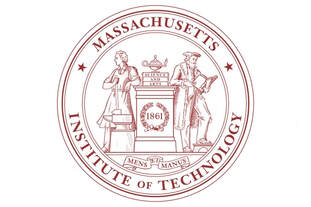
2019/06/25 President's Letter to the MIT community: Immigration is a kind of oxygen
President L. Rafael Reif said he felt compelled to write a letter "to share my dismay about some circumstances painfully relevant to our fellow MIT community members of Chinese descent." "As the US and China have struggled with rising tensions, the US government has raised serious concerns about incidents of alleged academic espionage conducted by individuals through what is widely understood as a systematic effort of the Chinese government to acquire high-tech IP. As head of an institute that includes MIT Lincoln Laboratory, I could not take national security more seriously. I am well aware of the risks of academic espionage, and MIT has established prudent policies to protect against such breaches. But in managing these risks, we must take great care not to create a toxic atmosphere of unfounded suspicion and fear. Looking at cases across the nation, small numbers of researchers of Chinese background may indeed have acted in bad faith, but they are the exception and very far from the rule. Yet faculty members, post-docs, research staff and students tell me that, in their dealings with government agencies, they now feel unfairly scrutinized, stigmatized and on edge – because of their Chinese ethnicity alone." |
|
Johns Hopkins University
|
Columbia University
|
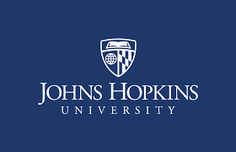
2019/07/09 A joint letter from President, Provost, and Dean of the Medical Faculty to University Community
The letter led by President Ronald J. Daniels reaffirmed its enduring commitment to its international students, researchers, and patients. It pledges to "advocate for sound policies that allow us to continue to be a place of open academic exchange" and "remain steadfast in supporting our colleagues and students from abroad who have committed themselves to our shared pursuit of truth and service to humanity." |

2019/06/14 Dean of Engineering Mary C. Boyce's Letter to Columbia Engineering Community
Dean Boyce's letter states that "It is important for each of us in Columbia Engineering to reflect on the importance of our commitment to maintaining an open and welcoming community for all students, faculty, researchers, and administrative staff. As a School of Engineering and Applied Science, we are fortunate to attract students and faculty from diverse backgrounds, from across the country, and from around the world." (Chinese Translation) |
|
Case Western Reserve University

2019/06/11 Case Western Reserve University President and Provost's Message to Faculty, Staff and Students
President Barbara R. Snyder and Provost Ben Vinson III issued an email stating that "[d]iversity is a core value at Case Western Reserve. It is essential to advancing our educational and research missions.... Integrity and transparency are also core values of our university. We all must follow government regulations and university policies.... National security is a paramount concern for all of us, but it must not be used as an excuse for isolation, discrimination or xenophobia." |
University of Chicago
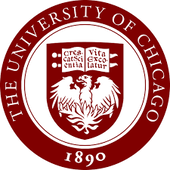
2019/06/10 President email to University Members on Internartional Scholarship
President Robert J. Zimmer wrote to "reaffirm the University's unwavering commitment to welcoming and supporting people of all backgrounds and nations" given recent developments impacting U.S.-China relations. The email added that "[w]e are monitoring these issues closely and, in keeping with the framework of laws and regulations, will continue to work with our community and external partners to address any concerns. |
|
University of Maryland
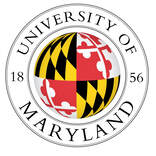
2019/05/30 President Wallace Loh on commitment to international collaborations and the international community
President Wallace Loh wrote "to reaffirm the University of Maryland's commitment to international collaborations and support for all faculty, students, visiting scholars, and staff on our campus from all countries, including China. American research universities, a landmark of American civilization, have thrived because of our core values of openness, academic freedom, and inclusiveness. Our universities draw talent from all over the world. In the U.S., the majority of PhDs in STEM fields are awarded to international students, many of whom eventually become U.S. residents and citizens." Read his entire statement here. |
Yale University
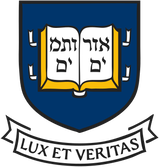
2019/05/23 Yale’s steadfast commitment to our international students and scholars
University President Peter Salovey issued a statement about "tensions in United States–China relations and increased scrutiny of academic exchanges have added to a sense of unease among many international students and scholars here at Yale and at universities across the country." The statement concludes that "I will continue to advocate for government policies that support the ability of international students and scholars to study and work in the United States. Openness—a key to the extraordinary success of America’s great research universities—must remain a hallmark of Yale." |
|
Rice University
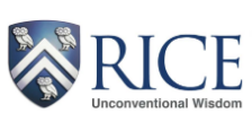
2019/05/17 Message from President David Leebron to the Rice Community
The message states that "Blanket generalizations regarding any group are dangerous, and risk leading to racial profiling and other forms of discrimination. Indeed, such discrimination has been felt more broadly by those of Asian descent, whether immigrants or not. On our campus, discrimination on the basis of citizenship, national origin or race is a clear violation of our policies. When members of our community with international backgrounds face obstacles to their freedom of movement or work, we will seek to support them. And while recognizing there are important issues that must be addressed in international relations, we will advocate forcefully for the openness of our country and institutions of higher education for both learning and research." |
University of Delaware
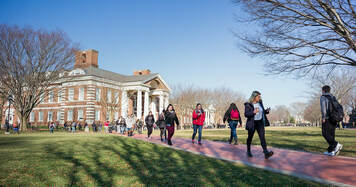
2019/05/10 University President and Provost Share Commitment to International Scholarship
University of Delaware President Dennis Assanis and Provost Robin shared this message to "reaffirm our unwavering support for our international students, faculty, staff and visitors, as well as the vital partnerships and initiatives that enable their work" after concerns were voiced regarding rhetoric and actions targeting certain international community members, such as Chinese or Chinese-American scholars. |
|
University of California at Davis
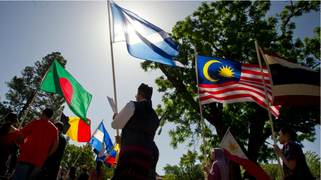
2019/04/22 UC Davis Reaffirms Commitment to Our International Community
The statement by four top university administrators led by Chancellor Gary S. May reiterates, "Let there be no doubt: At UC Davis, we highly value our international researchers, scholars and students. Indeed, our international relationships and collaborations form an essential part of our commitment to diversity and inclusion." |
University of Michigan
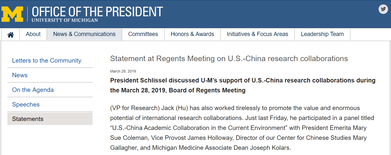
2019/03/28 President Schlissel discussed U-M’s support of U.S.-China research collaborations. The President's statement reiterates that the University of Michigan is proud to support research and educational collaborations with international scholars, including those from China. He believes that "one of the underappreciated aspects of having international exchanges is that they make our world a safer place."
See also President's statement in panel discussion titled "US-China Academic Collaboration in the Current Environment" sponsored by University of Michigan Association of Chinese Professors (Audio 1:24:48) |
|
University of California at Berkeley
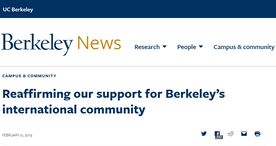
2019/02/21 UC Berkeley Reaffirms Support for International Community
The statement was issued in response to reports of negative comments directed at Chinese-American faculty, as well as at researchers engaged in collaborations with Chinese companies and institutions |
Stanford University
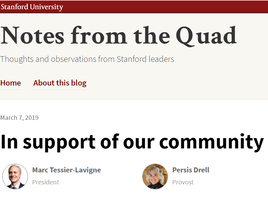
2019/03/07 Stanford Issues Statement "In Support of Our Community"
The joint blog by the president and provost states that "[a]s our country works to both advance innovation and protect national security, let us also make sure to reject prejudice and discrimination in all their forms." |
|
National Security, International Collaboration, and Civil Rights
On July 5, 2019, former NIH Director Elias Zerhouni published an editorial in Scence and called for the scientific community to weigh in on the path forward as Congress seeks to protect the open and collaborative approach to science and technology from nefarious activities of foreign states. "No members of any community should be targeted because of their origins, rather than for what they may have intentionally and demonstrably done to harm U.S. science and technology," Zerhouni said.
On July 15, 2019, Inside Higher Ed published an op-ed titled "Attacking Chinese on Our Campuses Only Hurts America." On July 16, 2019, Nature published an editorial, citing that US universities have a responsibility to defuse the climate of suspicion hanging over their Chinese and Chinese American communities. On July 26, 2019, the American Physcial Society reported on the steps being taken by the Society to maintain the balance between international collaboration and national security. On August 12, 2019, a coalition of more than 20 higher education and public advocacy organizations issued a joint statement cautioning FBI against unwarranted monitoring of Chinese scholars. On August 21, 2019, 150 pharmaceutical chiefs and scientists published a letter to support Chinese researchers living in "climate of fear." Well more than a dozen prominent universities have issued statements (see below). Most recently, Columbia University President Lee Bollinger said in his op-ed on August 30, "[i]f law enforcement agencies have legitimate concerns, it seems to me that they should identify and monitor those they designate as 'suspicious people' based on real threats, not broad worries about entire nationalities." However, a pending bill in Congress would actually allow the government to establish a secret blacklist that would not be available to the public and exempt from Freedom of Information Act inquiries. See Watch List. 2019/11/08 South China Moening Post: As US-China rivalry spills into education UCLA hits out at ‘corrosive’ racial profiling of foreign students 2019/08/31 USA Today: 9 Arizona State students from China detained at LA airport, denied admission to U.S. |
Calls for ActionDuring a time of rising tension between the U.S. and China, an entire group of students, scholars and scientists of Chinese heritage is caught in the crossfires and targeted as potential national security threat to America. An increasing number of faculty and students have reported that they have been subject to prejudicial comments, unwarranted scrutiny or professional strictures based on their race, ethnicity or national origin.
The United Chinese Americans (UCA) has called for universities and higher education institutions to issue statements to protect innocent Chinese American scientists, guard against racial profiling, and reaffirm support for the international students, faculty, staff and visitors, as well as the vital partnerships and initiatives that enable their work. If you can help with these efforts, please contact UCA at [email protected] or (202) 642-5060. The 80-20 Educational Fund has also issued a Call for Action: https://conta.cc/2H4Fg5R. 2019/07/25 South China Morning Post: Three more US universities pledge support for Chinese-American scientists caught in growing web of suspicion |